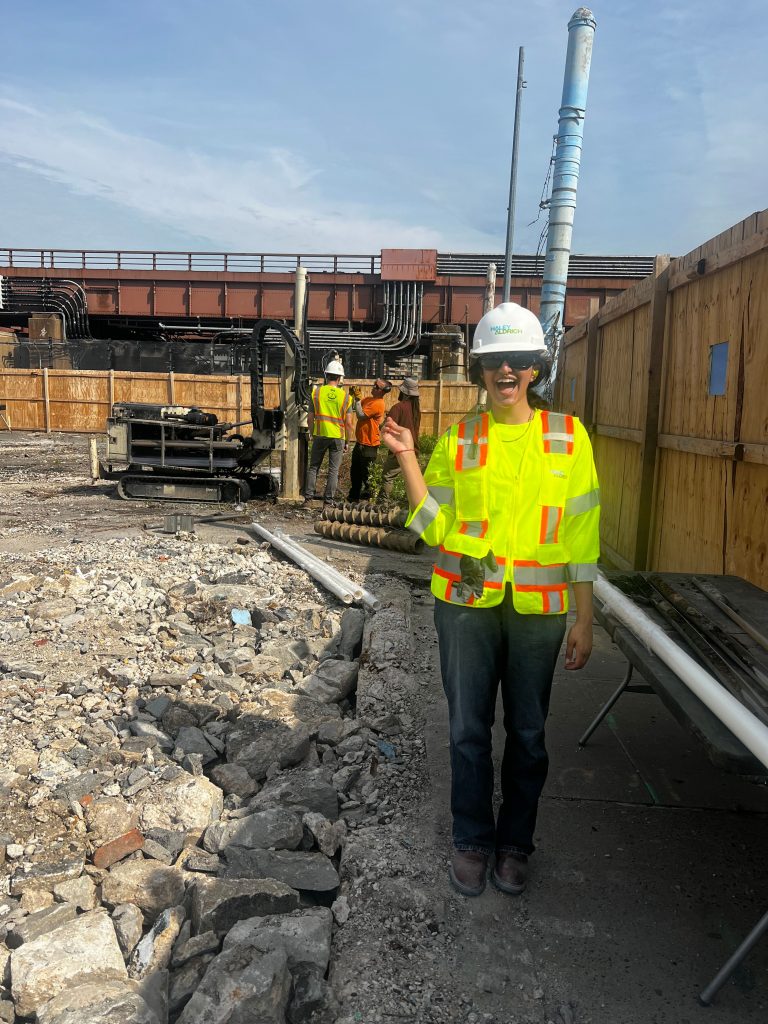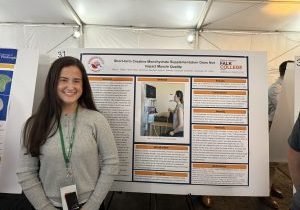
Ananya Chandra
This past summer, I worked for Haley & Aldrich of NY as a Civil/Environmental Engineering Intern. After earning my OSHA 40, I had the opportunity to perform field work at several remediation sites and visit community repositories to inform people about local cleanups. When I was not in the field sampling groundwater, performing soil characterizations, or assisting with trucking manifests alongside field staff, I was in the office supporting documentation work for the NYS DEC Brownfield Cleanup Program, playing around with environmental justice mapping tools, and connecting with folks at H&A supporting climate resilience, ESG programs, and innovative remediation design. My internship culminated in a presentation to national H&A staff on my Remedial Investigation field experience, and research on environmental justice implications of the Brownfield Cleanup Program– including the role engineers play in gentrification and how we can mitigate those impacts.
Experiencing fieldwork allowed me to understand rationales behind construction delays and setbacks, and how important it is to think on your feet. Interacting with construction crews was a new experience for me, and I was surprised by how important strong interpersonal skills are to maintain cohesiveness and efficiency in the field of engineering. I adored these interactions; so many of my coworkers came into the industry through such varied paths– healthcare, geosciences research, college sports careers, etc.
As a double major in Environmental Engineering and Environment, Sustainability, & Policy, I am a social-sciences inclined STEM person. It was fascinating to see DER-10, the policy document that guides NYS remediation programs, in action. My independent research on the environmental justice implications of the Brownfield Cleanup Program was transformative, and I look forward to taking that knowledge into my future within this career. As engineers, our work is in the service of humanity, and it is my hope to actuate sustainable infrastructural development via socially equitable practices such as local involvement in decision making and employment, and increased accessibility for information regarding local cleanups.










